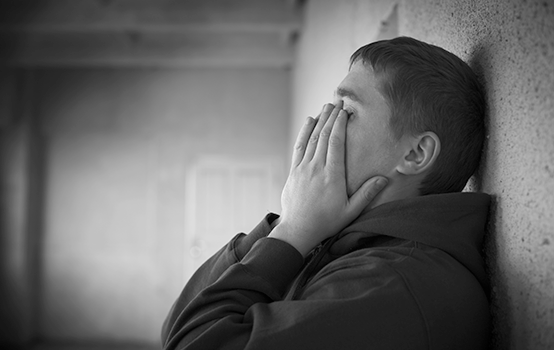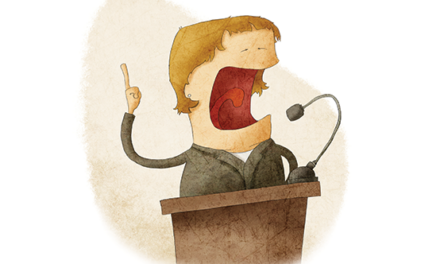
School counselors can find themselves in a legal quandary over what to do when they learn troubling information about students.
School counselors are in a position to learn a student’s most intimate secrets. An elementary school pupil may blurt out information that reveals private happenings at home. A high school teen may boast of his active love life or the awesome concert she will be sneaking out to this weekend.
Those conversations flow from trust, but, in the process, they create a Hamlet-like dilemma: To disclose or not to disclose, that is the question. School counselors frequently fly under the radar in a school community. Yet their role of building relationships and guiding students through academic and personal challenges is crucial to a school’s overall success. Few fully recognize, however, that those distinct duties can also easily ignite court cases rendering verdicts that can invoke life and death matters.
Three subjects can frequently force school counselors into tough legal predicaments: student suicide, child abuse, and personal beliefs versus professional responsibilities. In each instance, the law sets parameters that influence the actions a school counselor either should or must take after acquiring critical facts.
Suicide
Two cases, with opposite outcomes, illustrate the difficulty counselors can encounter in making decisions about confidentiality in the midst of a student’s suicide threat.
Joshua Markiewicz was a 7th-grade student at Iber Holmes Gove Middle School in Raymond, N.H., in 2004 when he told a teacher’s aide he “wanted to blow his brains out.” Joshua was learning disabled and had behavior problems. The aide told school counselor Linda Moule, who in turn called Joshua’s mother, Heidi Mikell.
Mikell offered to pick up Joshua, but Moule said he was “OK now,” and she would send him back to class. Without informing his mother, Moule required Joshua to sign a “contract for safety,” pledging not to hurt himself. Two months later, after several serious behavior problems, Joshua’s mother decided to home school him. Joshua hanged himself. Mikell sued for negligence, intentional infliction of emotional distress, and wrongful death.
In Mikell v. School Administrative Unit No. 33, the Supreme Court of New Hampshire concluded that the school counselor was not responsible for the tragic outcome. The 2009 decision followed a common legal theme that refuses to hold school personnel responsible when a student is not in district custody. Two lower courts that heard the case reached the same conclusion.
The court noted that, “Absent a showing that the school affirmatively caused a suicide, the primary responsibility for safeguarding children from this danger, as from most others, is that of their parents; and even they, with direct control and intimate knowledge, are often helpless.”
While educators’ primary mission is to develop what’s in a student’s mind, counselors over time potentially build close personal relationships and learn what’s on a student’s mind.
Carolyn B. Stone, a professor at the University of North Florida and an expert in legal issues affecting school counselors, said, the Mikell case is “huge” and has significantly influenced counselor behavior since it was decided, especially in decreasing the use of safety contracts.
By contrast, in Armijo Chavez v. Wagon Mound Public Schools, the 10th U.S. Circuit Court held a school district potentially liable for a student’s suicide. The facts are pretty egregious. A New Mexico principal suspended Philadefio Armijo and told the school counselor to drive him home. Neither one notified the 16-year-old special education student’s parents. Later that day, Philadefio’s parents came home to discover he had shot and killed himself. Earlier in the year and on the day of his suspension Philadefio told a school aide, “maybe I’d be better off dead,” and on another occasion said, “I’m just going to shoot myself.”
In the 1998 decision, the federal court explained that a reasonable jury could find that the principal and school counselor created the danger by dropping off young Philadefio at home alone, especially when they knew he was suicidal and had access to firearms. The case was sent back to the trial court for further consideration.
Child abuse
State laws on child abuse and neglect vary, but the consistent thrust is a two-part formula. First, counselors are considered mandated reporters, school officials are required to tell government investigators if they know or suspect child abuse or neglect. Second, states generally grant legal immunity if school counselors are well-meaning but wrong, allowing individuals to report without fear of being held financially liable for good-faith mistakes.
In Hughes v. Stanley County School Board, the Supreme Court of South Dakota ruled in favor of a school counselor who was fired for failing to report child abuse. M.B., a 3rd-grade student, approached Mary Hughes to say her father strutted around the house naked after a shower, that she walked in while he was masturbating, and that he touched her in her breast area during a pretend wrestling match. M.B., however, had a history of exaggeration and lying, which made Hughes doubt her stories.
To disclose or not to disclose, that is the question.
Hughes then knowingly violated explicit district policy in two ways: She failed to report the alleged sexual abuse to the administration, and she contacted M.B.’s parents. The couple admitted the allegations were essentially true, but assured Hughes they had taken steps so it would never happen again. Hughes’ actions came to light when the father was investigated for sexually assaulting a neighbor child and eventually pled guilty. Hughes was fired.
The divided court in 2001 explained, “The law does not require Hughes to act with the wisdom of Solomon, the deductive skills of Sherlock Holmes, or possess 20-20 hindsight, only that she act reasonably.” Adding that, “Involuntary termination not only involves disgrace and humiliation, but it may mean the end of the professional career.”
Still, Hughes escaped criminal culpability by one vote on a hung jury and had to endure the expense and emotional cost of the civil suit, months away from work awaiting the outcome, and public shame for her decision.
Personal beliefs
Shortly after being hired as a school counselor, Kathryn Grossman discovered literature in her office that explained to students how to use condoms. Without asking permission, Grossman replaced that information with literature advocating abstinence. In addition, on two occasions Grossman initiated prayer with students. In the first instance, a student was nervous about delivering the graduation speech; the second occurred when a crying student said her mother miscarried. At the end of her probation, Grossman was not recommended for tenure. The counselor sued claiming religious discrimination.
In Grossman v. South Shore Public School District, the 7th U.S. Circuit Court of Appeals ruled for the Wisconsin district, saying, “[s]chool authorities have a right to control the school curriculum . . . and equally to control the policies of its guidance counselors and other staff.” The decision declared, “Teachers and other employees have no right to make promotion of religion a part of their job description and by doing so precipitate a possible violation of the First Amendment’s Establishment Clause.”
Help with legal issues
The good news is that counselors are not adrift in making decisions about confidentiality or working through clashes with personal values. The American School Counselor Association publishes the Ethical Standards for School Counselors that addresses some of the most common dilemmas (ASCA, 2010). The seven-page document covers a wide range of topics including: responsibility to students, confidentiality, student records, students who are a danger to themselves and others, and responsibilities to parents and guardians.
ASCA’s May-June 2012 magazine features the “Ins and Outs of Ethics and Law,” and the organization also offers a Legal and Ethical Specialist certificate that requires applicants to review a multifaceted curriculum. Among study items is Carolyn Stone’s book, School Counseling Principles: Ethics and the Law (ASCA, 2009).
While educators’ primary mission is to develop what’s in a student’s mind, counselors over time potentially build close personal relationships and learn what’s on a student’s mind. Working together, the complementary roles can further a student’s well-being, while also keeping the district out of court.
References
American School Counselor Association. (2010). Ethical standards for school counselors. Alexandria, VA: Author. http://www.schoolcounselor.org/asca/media/asca/Resource%20Center/Legal%20and%20Ethical%20Issues/Sample%20Documents/EthicalStandards2010.pdf
ASCA School Counselor. (2012, May-June). The ins and outs of ethics & law. Alexandria, VA: Author. www.ascaschoolcounselor.org/files/magazine/MayJune2012.pdf
Citation: Darden, E.C. (2013). Ed law: When what you know could hurt a child. Phi Delta Kappan, 95 (4), 70-71.
ABOUT THE AUTHOR

Edwin C. Darden
EDWIN C. DARDEN is a consultant, freelance writer, adjunct law instructor, and managing partner of the Education Advocacy Firm, Springfield, Va.










